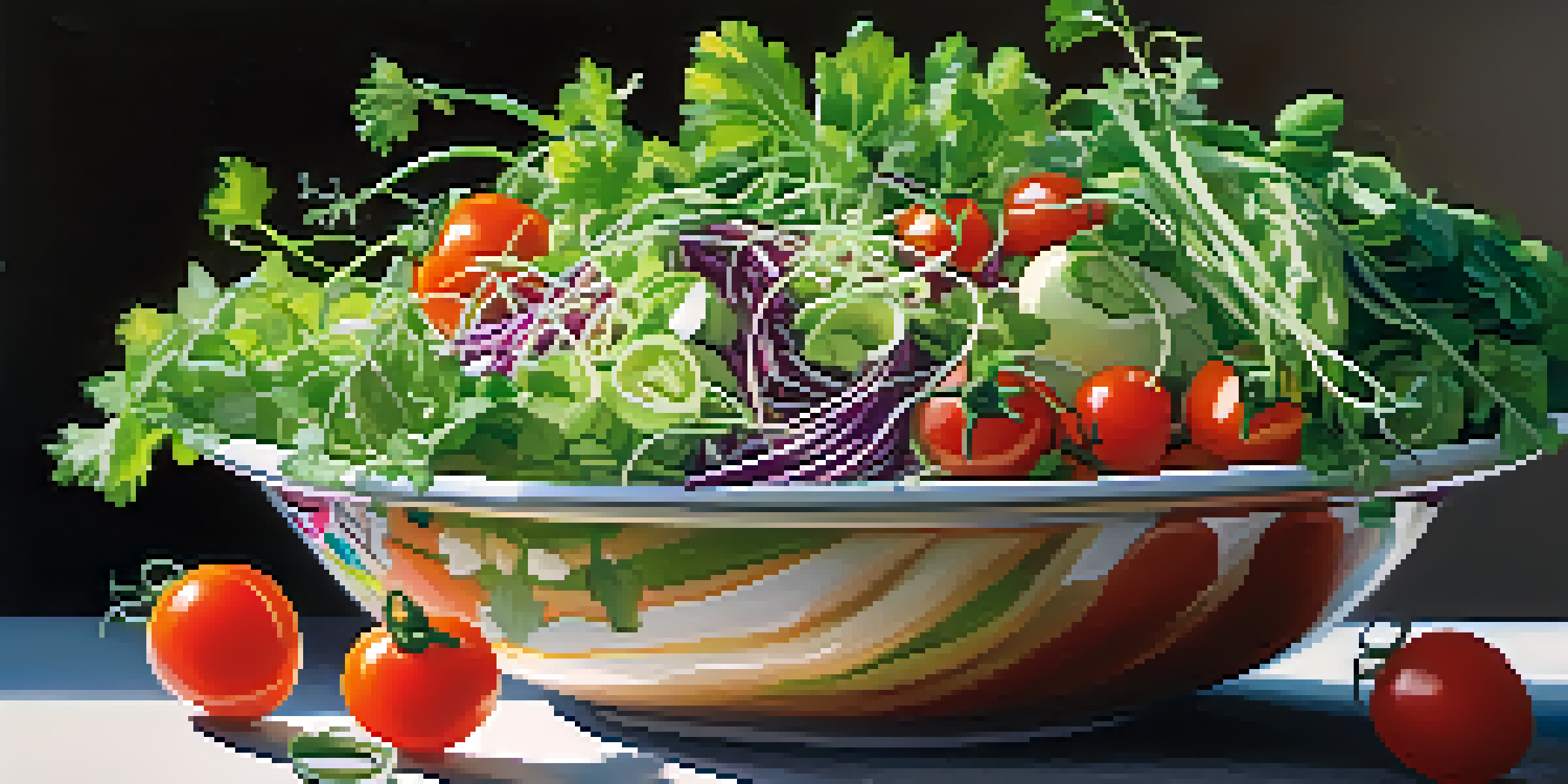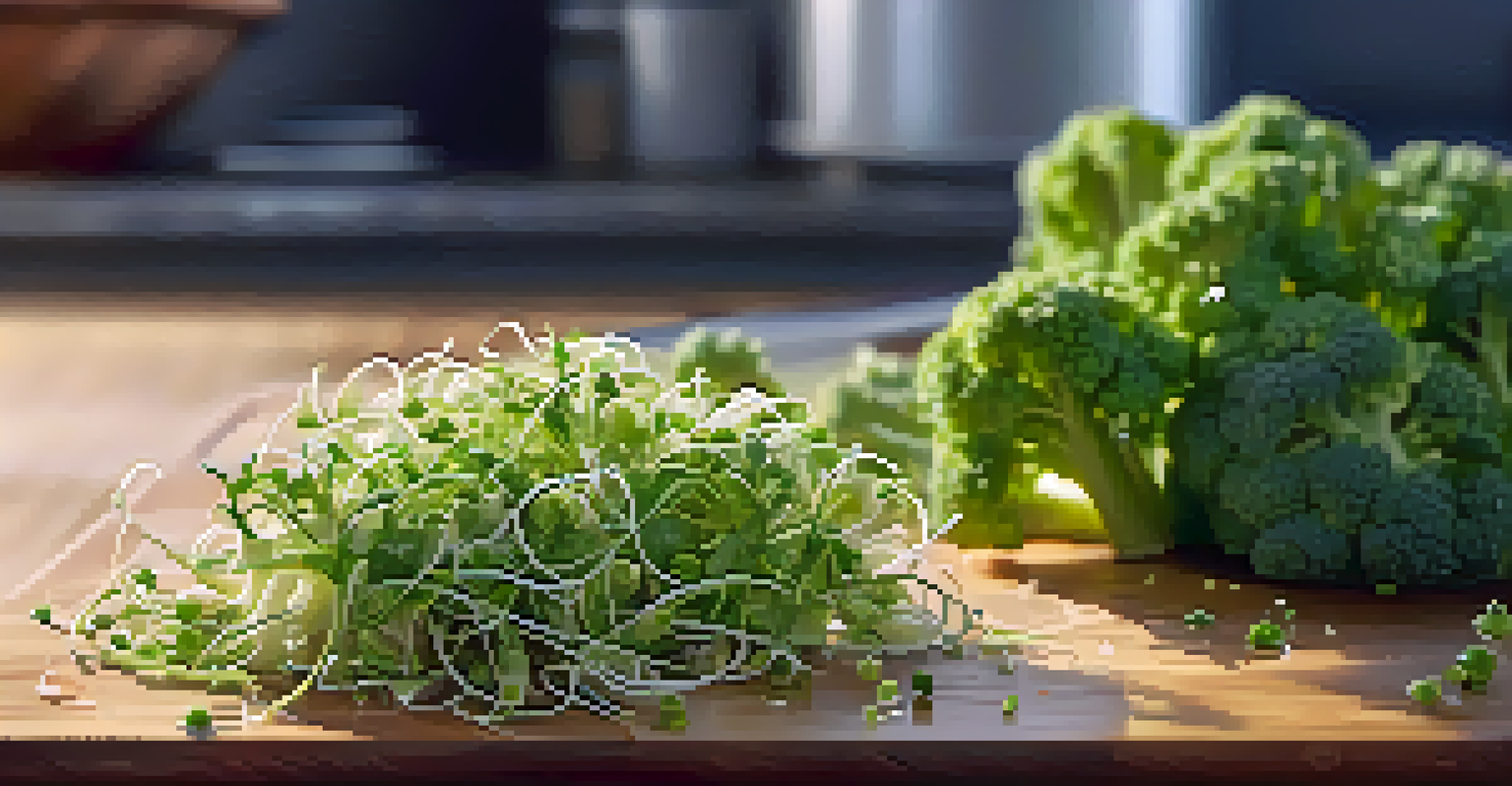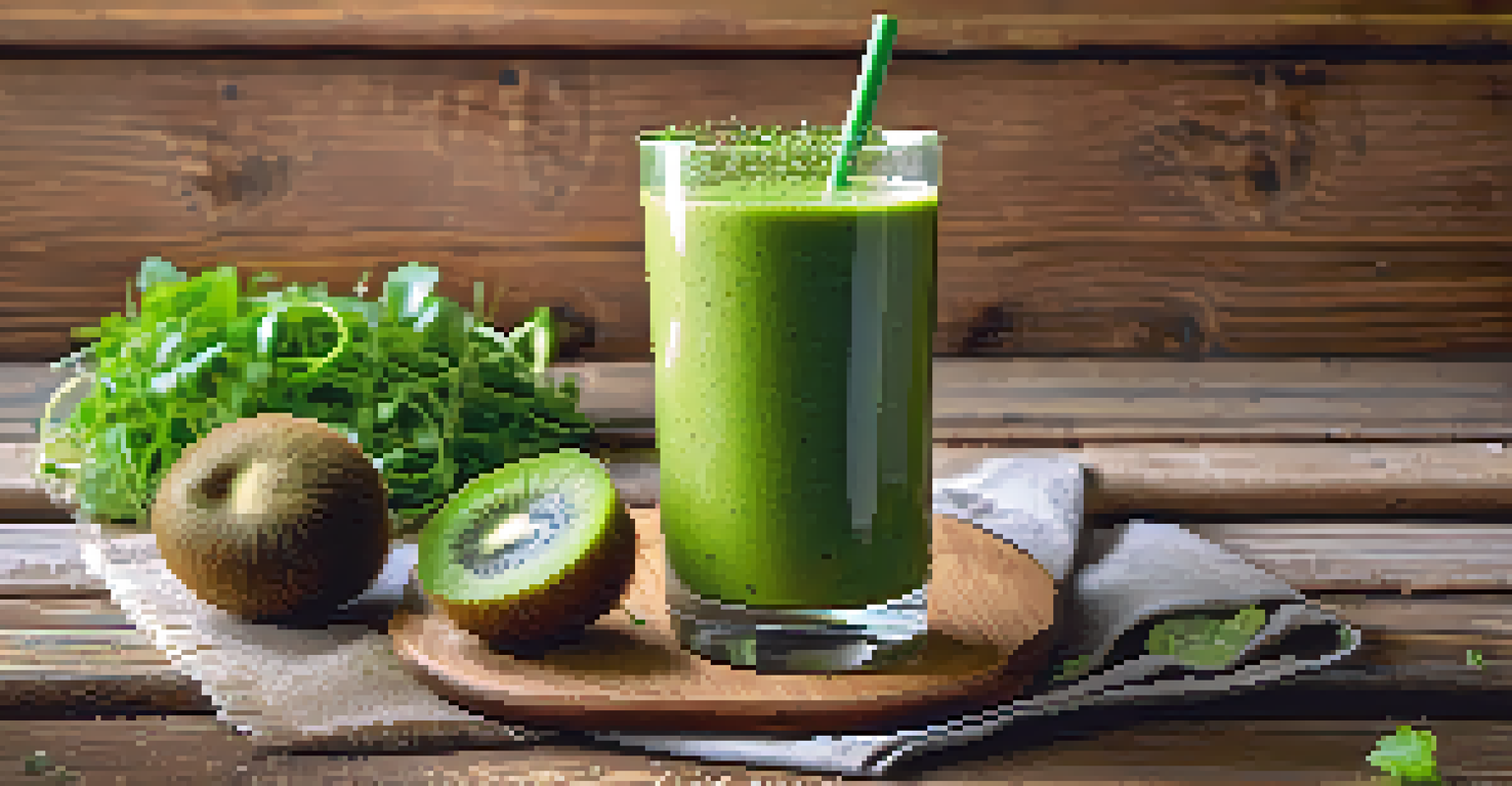Sprouts vs. Other Vegetables: Which is More Nutritious?

Understanding Nutritional Value: What Does It Mean?
Nutritional value refers to the essential vitamins, minerals, and other compounds in food that contribute to our health. When comparing sprouts to other vegetables, it's important to consider not just calories, but also nutrients like fiber, protein, and antioxidants. This ensures we're making choices that support our overall well-being.
Let food be thy medicine and medicine be thy food.
For example, many people focus solely on calorie content when choosing vegetables, but that overlooks the rich nutrient profiles that can be found. Sprouts, for instance, are often packed with vitamins A, C, and K — all of which offer various health benefits. Understanding these values helps us make informed dietary choices.
Ultimately, knowing what each vegetable brings to the table allows us to appreciate the diverse roles they play in our diet. This leads to a more balanced and nutritious eating pattern, which is essential for maintaining good health.
What Are Sprouts? A Quick Dive into Their Benefits
Sprouts are germinated seeds, and they are often touted as superfoods due to their concentrated nutrient levels. Common varieties include alfalfa, broccoli, and mung bean sprouts, each boasting unique health benefits. These tiny powerhouses can be added to salads, sandwiches, or smoothies for a nutritional boost.

One of the standout features of sprouts is their high enzyme content, which can aid digestion and improve nutrient absorption in the body. This means that not only are you consuming vitamins, but your body is also more efficient at utilizing them. That’s a win-win for your health!
Nutritional Value of Sprouts
Sprouts are nutrient-dense foods packed with vitamins, minerals, and antioxidants that contribute significantly to overall health.
Additionally, sprouts are low in calories but high in fiber, making them a great option for those looking to manage their weight. They can fill you up without weighing you down, which is a fantastic trait for any vegetable.
Comparing the Nutritional Profiles of Common Vegetables
When you stack sprouts against other vegetables like carrots, spinach, or bell peppers, you'll find that each has its strengths. For instance, carrots are rich in beta-carotene, which is great for eye health, while spinach offers iron and calcium. This variety means that no single vegetable holds the crown for nutrition.
You are what you eat, so don't be fast, cheap, easy, or fake.
Sprouts, however, often outshine these vegetables in certain areas. They typically contain higher levels of vitamin C and protein per calorie than many other options. This makes them an excellent addition for anyone looking to enhance their nutrient intake without consuming large quantities.
Ultimately, incorporating a mix of sprouts and other vegetables into your diet ensures you're getting a broad spectrum of nutrients. This diversity not only keeps meals interesting but also supports different aspects of health.
The Role of Antioxidants in Sprouts vs. Vegetables
Antioxidants play a crucial role in combating free radicals in our bodies, which can lead to chronic diseases. Sprouts are particularly high in antioxidants, often more so than many mature vegetables. This means they can contribute significantly to reducing oxidative stress and inflammation.
For example, broccoli sprouts have been found to contain sulforaphane, a powerful compound with cancer-fighting properties. In comparison, while mature broccoli is also healthy, the sprouted version may deliver even more punch when it comes to antioxidants. This highlights the benefits of eating foods in their various growth stages.
Unique Digestive Benefits
Sprouts contain prebiotics that support gut health, making them a unique addition to a digestive-friendly diet.
Incorporating both sprouts and other vegetables maximizes your intake of antioxidants. It’s like having a defense team for your body, ensuring you’re well-protected against various health issues.
Digestive Health: Sprouts' Unique Edge
When it comes to digestive health, sprouts have some unique advantages. They contain prebiotics, which are types of fiber that feed the beneficial bacteria in your gut. This can lead to improved digestion and overall gut health, which is crucial for nutrient absorption.
In contrast, while many vegetables also promote digestive health, they may not have the same level of prebiotics found in sprouts. For instance, traditional vegetables like lettuce or cucumbers lack this specific type of fiber. This makes sprouts an excellent choice for those looking to enhance their gut flora.
By including sprouts in your meals, you not only enjoy their crunch and flavor but also their digestive benefits. It’s a simple way to support your body’s health from the inside out.
How to Incorporate Sprouts into Your Diet
Adding sprouts to your diet doesn't have to be complicated. They can easily be tossed into salads, blended into smoothies, or used as a topping for various dishes. This versatility makes them an accessible option for anyone looking to boost their nutrition.
For instance, consider sprinkling some alfalfa sprouts onto a turkey sandwich for an added crunch and nutrient boost. Or blend broccoli sprouts into a green smoothie for a hidden health kick that enhances your drink without altering the taste significantly.
Incorporating Variety in Diet
Including both sprouts and a variety of vegetables in your meals ensures a diverse, nutrient-rich eating plan for better health.
Experimenting with different types of sprouts can also keep meals exciting. Trying out various flavors and textures in your dishes not only enhances your culinary experience but also contributes to a more varied and nutritious diet.
Final Thoughts: Balance is Key for Nutrition
Ultimately, the debate of sprouts versus other vegetables isn't about choosing one over the other. It's about understanding that each vegetable has its own unique benefits and plays a role in a healthy diet. By including both sprouts and a variety of other vegetables, you can create a diverse and nutrient-rich eating plan.
Remember, moderation and variety are essential. Regularly rotating your vegetables not only keeps meals interesting but also ensures you're receiving a wide array of nutrients. This balanced approach supports long-term health and wellness.

So next time you're at the grocery store, consider picking up some sprouts along with your favorite veggies. Embrace the diversity of plant-based foods and enjoy the multitude of health benefits they bring!